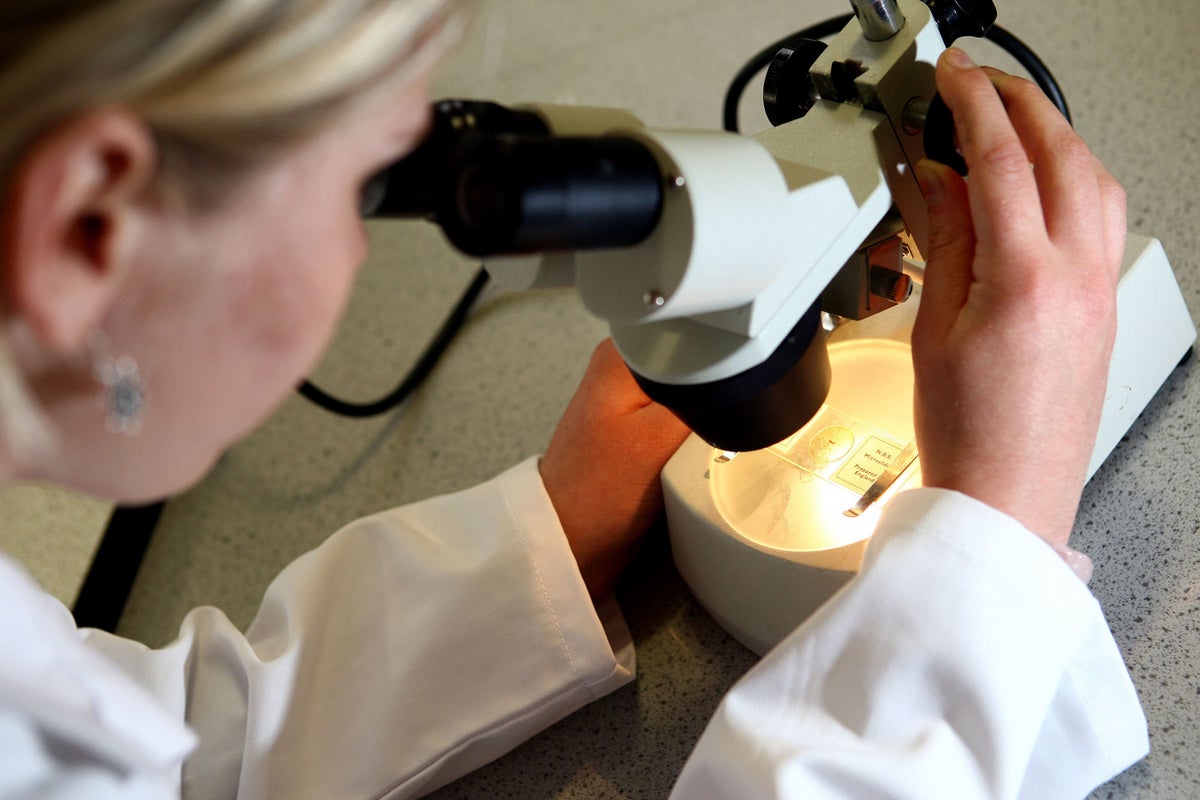
Your support helps us to tell the story
Doctors are taking the first steps to develop a vaccine for people with a condition that increases their risk of a number of cancers.
Lynch syndrome is caused by a mutation in the gene that fixes mistakes in DNA when it is copied, which can lead to uncontrolled cell growth.
An estimated one in 400 people in England have the condition, according to the NHS, although only 5% are aware they are living with it. Last year, the health service started rolling out a genetic test for Lynch syndrome.
People with the condition have a higher risk of developing cancers of the bowel, womb and ovaries.
About 1,100 bowel cancer cases in England each year are caused by Lynch syndrome and the condition is thought to increase the lifetime risk of the disease by 80%.
Researchers from the University of Oxford could potentially design a vaccine that teaches the immune system of someone with the disorder to recognise and destroy cells before they become cancer.
As part of the project – known as LynchVax – scientists will analyse cells from Lynch syndrome patients that are showing signs of becoming cancerous.
They will use their findings to determine which parts of a pre-cancer cell can be attacked by the immune system and if a vaccine approach is likely to work.
Simon Leedham, a professor of molecular genetics at the University of Oxford and honorary consultant gastroenterologist, said: “People with Lynch syndrome are at very high risk of developing bowel cancer, womb cancer and other cancers – so much so that they get invited to attend bowel screening appointments at a younger age than the rest of the UK population.
“LynchVax has the potential to reduce that risk. While our work is in its infancy, we are excited by the prospect of a vaccine that can potentially be used to prevent the multiple types of cancer that typically occur in people with Lynch syndrome and deliver tangible improvements in survival.”
Helen White, who is a member of the LynchVax patient public involvement group, added: “As passionate advocates for involving people with lived experience in research, we fully endorse the plans to reach out to the wider Lynch syndrome community to gather their views on a cancer-preventing vaccine. This is a crucial step in preparing for future clinical trials.”
Cancer Research UK has awarded the LynchVax team £550,000.
Michelle Mitchell, chief executive of Cancer Research UK, said: “Cancer vaccines continue to show promise in helping to create a world where people can live longer, better lives, free from the fear of cancer.
“Projects like LynchVax are a really important step forward into an exciting future, where cancers that occur in people with Lynch syndrome could potentially be prevented.
“This is one of many cancer vaccine projects Cancer Research UK is funding that we hope will reduce the number of cancer cases over the coming decades.”
It comes after analysis by the charity warned cancer deaths in the UK could rise by 17% by 2029 when compared with the last five years.
It also estimates there will also be around 2.2 million new cancer diagnoses, a hike of 22%, during the same period.







